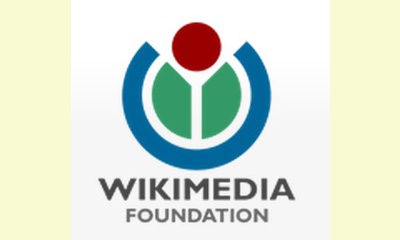|
|
Wikipedia Summit “Wikimania” comes to London - Largest ever gathering
un article par Wikimedia Foundation
Wikimania’s 2014 team announce the programme for this
year’s historic event. Wikimania 2014 will be held at the
Barbican Centre in London from 8th to 10th August, with a
two day pre-conference held August 6th and 7th. Over 4,000
attendees are expected; more than twice the number at any
previous Wikimania. 
click on photo to enlarge
The future of Wikipedia, and other Wikimedia projects, forms
the central theme. As technological advances promise big
changes on the platform, Wikipedia founder, Jimmy Wales will
delve into what the future has in store for the world’s fifth
most popular website.
“Wikipedia is the largest knowledge base in the world,
consulted by over half a billion people each month,” says
Wales. “However, we’ve only just begun to scratch the surface
of what can be done with it. Through international expansion,
a new focus on open data, and a big investment in technology
development, our movement is charting exciting new
territory.”
Attendees will also welcome Wikimedia Foundation’s new
executive director, Lila Tretikov. Her keynote will focus on the
impact of Wikipedia in our changing world and its potential
for our future.
Tretikov sees Wikipedia, a top five website, as an opportunity
to for unlocking and democratizing knowledge globally: “I’d
like us to think beyond what we know today. Think beyond
our accomplishments, towards opportunities. Opportunities
for all our collective minds to build the future of knowledge,
collaboration and trust.” Recent developments have included
plans focused on overhauling Wikipedia’s user experience for
readers and editors, a programmatic approach to grant-
making and community, and establishing a development
platform for knowledge building.
Open to the public, Wikimania is a five-day, community-
organised event focusing on new projects in the world of
MediaWiki, transparency, and open knowledge. Themes
include collaborative working, natural language processing,
crowdsourcing, education, journalism, scientific and medical
research, open data, and multimedia.
|








|
DISCUSSION
Question(s) liée(s) à cet article:
Free flow of information, How is it important for a culture of peace?
* * * * *
Commentaire le plus récent:
Perhaps the simplest way to illustrate the essential importance of free flow of information for a culture of peace is to discuss the importance of the control of information for the culture of war.
Here are excerpts from an Washington Post investigation two years ago entitled Top Secret America: A hidden world, growing beyond control. To read the original, click here.
"* Some 1,271 government organizations and 1,931 private companies work on programs related to counterterrorism, homeland security and intelligence in about 10,000 locations across the United States.
* An estimated 854,000 people, nearly 1.5 times as many people as live in Washington, D.C., hold top-secret security clearances.
* In Washington and the surrounding area, 33 building complexes for top-secret intelligence work are under construction or have been built since September 2001. Together they occupy the equivalent of almost three Pentagons or 22 U.S. Capitol buildings - about 17 million square feet of space.
* Many security and intelligence agencies do the same work, creating redundancy and waste. For example, 51 federal organizations and military commands, operating in 15 U.S. cities, track the flow of money to and from terrorist networks.
* Analysts who make sense of documents and conversations obtained by foreign and domestic spying share their judgment by publishing 50,000 intelligence reports each year - a volume so large that many are routinely ignored." . . .
"Every day across the United States, 854,000 civil servants, military personnel and private contractors with top-secret security clearances are scanned into offices protected by electromagnetic locks, retinal cameras and fortified walls that eavesdropping equipment cannot penetrate. . .
Much of the information about this mission is classified. That is the reason it is so difficult to gauge the success and identify the problems of Top Secret America, including whether money is being spent wisely. The U.S. intelligence budget is vast, publicly announced last year as $75 billion, 21/2 times the size it was on Sept. 10, 2001. But the figure doesn't include many military activities or domestic counterterrorism programs."
As we said in the draft Declaration and Programme of Action on a Culture of Peace that we sent from UNESCO to the UN General Assembly in 1998:
"98. It is vital to promote transparency in governance and economic decision-making and to look into the proliferation of secrecy justified in terms of 'national security', 'financial security', and 'economic competitiveness'. The question is to what extent this secrecy is compatible with the access to information necessary for democratic practice and social justice and whether, in some cases, instead of contributing to long-term security, it may conceal information about processes (ecological, financial, military, etc.) which are a potential threat to everyone and which need therefore to be addressed collectively."

|
|









